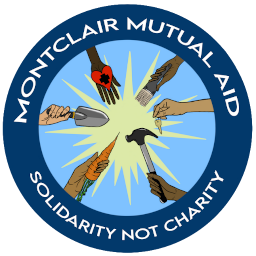Getting things done mutually
Getting things done mutually
I lost my job.
I can’t pay rent on time.
The trash hasn’t been picked up on my street.
We’re out of food before the end of the month.
The pandemic forces me to stay home and I can’t go shopping.
My kid got sick.
My boss might fire me.
I’m up to my neck in three jobs.
I can’t take my kid to soccer.
I’m not coping with the pressure.
So many problems. Sometimes it’s just more than one person can handle alone. Mutual aid is about solving problems together.
Chances are that you’re not alone. Other people nearby face the same issues, caused by the same underlying situation. Other people have trouble with work, or money, or providing for their families, or taking care of kids, or just staying afloat.
- Some neighbors are also struggling with the economy – money, rent, jobs.
- Some neighbors are also facing health issues – illness, disability, pandemic, vulnerability, overstress.
- Some neighbors are also feeling alone, pressured, disrespected, worried.
Mutual aid organizations aim to bring people together with their neighbors, and people in their community, to help one another tackle problems, reduce expenses, and just feel connected. Neighbors want to help one another:
- taking turns watching the kids,
- picking up some items at the grocery store,
- sharing food so no one goes hungry,
- talking with town hall to get potholes fixed, trees planted, water pipes replaced,
- getting help for a local resident who acts angrily or threateningly,
- keeping an eye out for job openings of interest,
- teaching one another skills to save money or get work,
- calling out businesses that mistreat employees,
- pooling money to buy shared gardening tools,
- offering moral support and the feeling of belonging in the community,
- … and many more possibilities.
Neighbors helping one another happens naturally. It doesn’t require any special talent, training, or personality. It can happen more quickly and powerfully when some community members decide to make it happen, and talk together.
credit union
community healthcare network
sharing economy
Members of the community supported each other wonderfully; as well as arranging the ordering and distribution of vegetables, flour, fish and other necessities. A particularly valuable method used to share and disseminate information and to support one another, was All Things Overton Facebook initiated and maintained by two local volunteers. Individuals and groups made and distributed face coverings, scrubs and other medical items. Regular deliverers of mail, milk and other produce offered to stay alert in case assistance or notifying the team became necessary. Communication with Lancaster City and County Councils was regular via Mark Bartlett (Civil Contingencies Officer) and via Community Connectors through Rural/Parish Council Microsoft Teams meetings.
